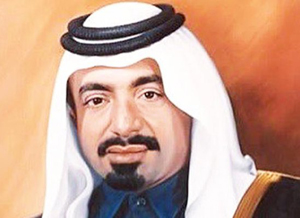Dubai, July 6: In an attempt to make a comeback in the tourism sector amidst managing covid-19 crisis, Dubai is all set to welcome holiday-makers from foreign countries from July 7.
It said those entering would have to present certificates to show they had recently tested negative for the coronavirus or would undergo tests on arrival at Dubai airports.
Reassuring tourists of several comprehensive measures to prevent the transmission of the pandemic, Dubai Tourism urged global travellers to make the city that boasts world class health and safety standards "a must-visit destination."
Dubai Tourism hosted a virtual forum for stakeholders and partners to share its industry outlook ahead of the city's reopening to international tourists.
The forum, which was attended by nearly 2,000 key executives from the aviation, travel and hospitality sectors and across tourism touch-points, provided a first-hand insight into current and post-pandemic strategies that will help accelerate tourism momentum and position Dubai as a safe global destination.
Helal Saeed Almarri, director general, Dubai Tourism, said that the city has put in place a robust strategy to manage the pandemic with the key priority being to safeguard the health and well-being of citizens, residents and guests.
Dubai, which saw a 5.1 per cent in tourist traffic to 16.73 million in 2019, remains top of mind for travellers and ranks high in global Internet search rankings for tourist destinations.
Dubai Tourism has launched marketing activities designed to convey positive messages about travel in today's environment, Dubai's preparedness, high standards of quality and safety, unique experiences that await visitors and also address traveller concerns across every touch-point in their journey.
The forum highlighted the preventive measures taken so far against Covid-19 that have further elevated the UAE's standing as one of the world's safest countries. The UAE is globally ranked No.3 in testing per million of population. It was also ranked No.3 in an international survey that assessed satisfaction with governments' response to the pandemic.
Over 350 influencers were also deployed to take the Dubai story in 14 different languages to a global audience spanning 18 markets, which yielded over 21 million engagements across multiple social media platforms.
 Qatar to observe three days of mourning after the former emir, who ruled for more than 20 years, passed away at 84.
Qatar to observe three days of mourning after the former emir, who ruled for more than 20 years, passed away at 84.




Comments
Inna Lillahi Wa Inna Ilaihi Rajivoon. A great leader. May Allah Grant him Jannathul firdous. Ameen
Add new comment